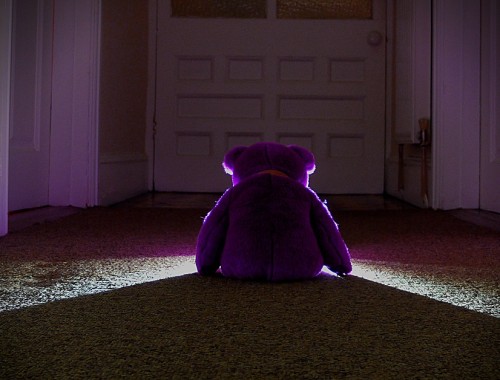In the communities I grew up in, it was rare for someone to refer to themselves as a “Christian.” We were Bible-believers, Jesus-followers, disciples, believers, sisters and brothers, but not Christian. That word had far too loose a meaning– after all, Catholics could call themselves “Christians.” It was a term that, to us, was wrapped up in organized religion— which we were not, because we were Independent and didn’t belong to a church hierarchy like those dirty no-good Southern Baptists.
For me, I never really chose a label to describe myself, but when pressed about my beliefs would refer to myself as Baptist, all while joking that “you don’t go to the grocery store to buy the label on a can of green beans– you just want the beans, and the label helps you find them.”
When I started moving around in larger faith communities, I ran into the term evangelical, and for a long time it puzzled me. I had no idea what it meant, aside from the generic “typical American Christian” definition I could glean from context. As I’ve done more moving and reading, I’ve found that while evangelical encompasses a huge camp of people, denominations, and movements, people who identify as “evangelical” are those who believe in a certain list of things. That list changes depending on who you’re talking to, but there’s usually somewhere in the ballpark of 5-10 things on it. In my personal experience, that list includes the following:
- Penal substitutionary Atonement
- Salvation by faith that occurs at a specific moment
- Inspiration and Inerrancy of the Protestant Canonical Bible (trending toward biblical literalism)
- Original Sin that is Inherited by and Imputed to all people in a Fallen World
- Belief in unending conscious torment (literal Hell) to which the unsaved are damned
- God relates to us in the masculine– God is Father, not Mother
- Emphasis on the spiritual over the physical, the Soul over the Flesh
- Faith and practice are matters of the individual, not the communal
It didn’t take me too much longer after I’d compiled this list to realize that I didn’t agree with much on it, and I realized that I basically went straight from being a fundamentalist Baptist to being progressive/liberal, and I didn’t really stop in Evangelical Land on the way there (although there was a four-year detour to agnostic theism). Granted, not every single last person who identifies as evangelical is going to agree with this list– but I think this list is typical of evangelicalism in America, at least. However, last week, it became glaringly obvious that to a lot of people living in Evangelical Land, another item needs to be added to this list:
- Bigotry and Homophobia
And that was the kicker that made a lot of us throw up our hands in defeat. I’d already decided months before that I couldn’t identify as evangelical, but now I’m facing another question: can I even identify as Christian any more?
I still affirm the Nicene Creed (of 325) . . . but that’s about it. As I was writing out the list above, I tried to focus on doctrines that seemed more particular to American evangelicalism, but I kept including items that are traditional orthodox beliefs– and not just Protestant ones, but Catholic and Eastern ones, too. I still believe in God, in Jesus, in his death and Resurrection . . . and that’s really about it.
I embrace beliefs and philosophies that have been condemned by the Church Universal as heresies for centuries. I’m exploring inclusivism, open theism, Pelagianism, liberation theology– and asking questions like Is God immutable? Is Jesus Divine? How much can I trust the Canon, if I can even trust it at all? Do I believe that salvation is a grace-filled, works-based process? Is there an afterlife? Can I explore other religions as revelations of the Divine?
I’m pretty sure a lot of those questions land me in the “New Age Pagan-Heretic” camp to a lot of people. To the fundamentalists I grew up with, I’m pretty sure they’d revoke my “Christian” card in a hurry. So the question I have to ask myself is . . . do I let them? I can’t fully affirm many of the basic tenets of Christianity since my questions about them are still so huge– and is that what makes a Christian, practically? If I don’t fit well under the “big tent” that is Protestantism, Catholicism, or Eastern Orthodoxy, is it useful to still identify as a Christian, or should I adopt another moniker, like “spiritual”? Would that be more beneficial in communicating who I am and what I believe?
Or, do I decide for myself what “Christian” means? Am I a Christian because I believe, with all my heart, in the teachings of the Christ as found in the Gospels– no matter how historically reliable they may or may not be? Am I still a Christian because, like Peter, all I feel can be summed up in you have the words of life, where else can I go? Am I a Christian because my soul longs for the beauty and mystery of the Sacraments? Because I find rest and comfort and peace in a Mother-Father God who became Immanuel?
I’m not sure. There’s a line between words have meaning because they have culturally agreed-upon definitions and I can call myself whatever the hell I want because– well just, because. There’s also another way of asking the question: do I want to be associated with the culturally-agreed upon definition when that definition involves so much hate? Or, do I reclaim “Christian” in order to demonstrate what Jesus taught– that they shall know us by our love?



